In a post called Sacrifice I have referred to one of the most common pro-natalist claims which is that the vast majority of people find their life good and only a tiny minority find their life miserable, and so, since the chance for miserable life is very low, it is not justified to prevent procreation.
In this text I want to address a similar pro-natalist claim which is that given that the chance for miserable life is very low, it is not justified to prevent procreation since people’s desire to procreate outweigh the misery of the tiny minority that find their life miserable.
Since I have addressed the issue of the chances of imposing a miserable life in the post Sacrifice mentioned earlier, as well as in the one regarding Benatar’s Quality of Life Argument, and more thoroughly in the post about Suicide, I’ll not repeat here the counter arguments and the explanations to why the basis for this pro-natalist claim is false. Here, for the sake of the argument, I’ll ignore the fallacy of its basis, and focus on the wrongness of the argument itself.
The wrongness of this argument also involves sacrificing, but different than the one claiming that since most people are satisfied with their lives creating new people is morally justified, a claim based, even if unconsciously, on the false assumption that the case is of two groups of unborn persons, one who would be miserable and one who would be satisfied, and since the one who would be satisfied is bigger, then procreation is morally justified. But it is not a question of volume. We don’t need a majority to decide in the case of procreation since there is no one who is harmed by not being created, not the satisfied group and not the miserable group. There are no victims in non-existence. And there are victims in existence, especially in the case of miserable life. So what this claim is suggesting is to defend procreation using the tyranny of the majority. Justifying procreation despite that some would live miserable lives, for the sake of the ones who would live happy lives, is sacrificing individuals for others’ pleasures, pleasures which in no way would be missed had no one existed.
However, the pro-natalist argument I wish to address in this post, doesn’t entail sacrificing people who would be miserable for people who would be happy if forced into existence. It entails sacrificing people who would be miserable if procreation is allowed for people who would be miserable if procreation isn’t allowed (those who want to be parents). So as opposed to the former argument, in this case we can’t counter argue that if no one is created no one is harmed.
The reason this argument is false is first of all since an interest is not an ethical justification. The interest to do something is insufficient as a moral reason to do it. Obviously people have an interest to procreate, that’s why they are procreating, but that is a description of our dire reality, not an ethical justification of it.
The antinatalist argument is that people mustn’t procreate because procreation is wrong, for example because it is forcing harms on someone else without consent, so the answer can’t be that procreation is not wrong because people want to procreate and would be frustrated if they couldn’t.
Can people’s desire to eat animals be a justification for the torture which is factory farming? Arguing that all factory farms must be closed down today for the pain and misery they cause can’t be seriously counter argued by claiming that people have a desire to eat meat, eggs and milk. Some might argue that eating meat is not like creating new people, but I fail to see the fundamental difference in this context as in both cases people do as they please at the expense of others without their consent.
The desire of people to procreate is morally wrong and therefore can’t be weighed against, not to mention weighed in an equal manner against, reasons not to procreate which are morally valid. The reply to an ethical argument can’t be that it is false since moral agents prefer not to act accordingly. The interests of the victimizers, or at least the ones who are responsible for the harm, can’t be weighed against the interests of the victims, and definitely not in an equal manner.
The parents, who are the ones responsible for the harms, can’t argue that the harms must be weighed against their interests to cause it. That’s a distorted morality.
But even if for the sake of the argument I’ll agree that the interests of people who want to procreate should be considered despite that procreation is morally wrong, weighting their interests against the suffering of the ones who would lead miserable lives, is a false equivalency. First of all since procreation is not only forcing needless and pointless suffering on the created person, but is also, and in fact first and foremost, forcing needless and pointless suffering on thousands of subjects vulnerable to harms, since each person created is hurting thousands of sentient creatures during a lifetime.
Procreation is not only creating a subject of harms and pleasures, but a small unit of exploitation and pollution. Therefore, the question is not is it justified that people would impose harms on another person so they can fulfil their desire to procreate, but is it justified that people would impose immense harm on many others so that they would fulfil their desire to procreate.
The question in point is not is it ethical to take the risk of creating miserable lives, but is it ethical to impose immense suffering on many others so that a truly tiny minority would
experience parenthood. How can it possibly be acceptable to force lives full of suffering on thousands of sentient beings, just so that one unethical preference of would-be parents won’t be frustrated?
But it goes even further than that. What should be weighed against the interests of people who want to procreate is not only the people who would be born into miserable lives by the current people who want to procreate, and not only the animals who would be harmed by the newborns of the current people who want to procreate, but all the harms, and all the misery, and all the suffering that would ever be caused by humans. The equation is between one generation of people who would sacrifice its desire to procreate, and all the victims of all the procreations that would ever occur.
Human procreation is not only risking “a tiny minority” who might be sacrificed for the sake of people’s desire to procreate, it is ensuring that numerous generations of sentient creatures would be sacrificed for one desire of an extremely tiny minority – one generation, of one species only.
And since people don’t even take seriously the possibility that their own children might suffer extremely, there is no chance they would ever take seriously the certainty that numerous generations of sentient creatures would suffer extremely because of their procreation. That’s why we mustn’t wait until people would understand that it is ethically impossible to justify procreation, but do everything we can to make it impossible to procreate.
Think about it this way, if one generation of humans had decided that it is wrong to procreate and therefore agreed to sacrifice its desire to do so, that decision would have prevented all the suffering caused by humans from the moment the last person of that generation died. If for example that generation lived in the beginning of 19th century, that decision would have prevented all the suffering that occurred during the 20th century. Two world wars, hundreds of other wars, all the war crimes, all the reeducation camps, the famine in China, the famine in Ukraine, the famine in Japan, the famine in Russia, the famine in India, the famine in Somalia, the famine in Ethiopia, the famine in Mozambique, the famine in Yemen, the famine in Sudan, all the rapes, all the murders, all the tortures, all the concentration camps in Poland, Germany, Cambodia and North Korea, all the diseases, the Holocaust, the ethnic cleansing in Rwanda, the ethnic cleansing in Armenia, the ethnic cleansing in Yugoslavia, the ethnic cleansing in Cambodia, all the animal experimentations, all the fishing, all the hunting, all the beating, all the humiliations, all the accidents, all the disappointments, all the frustrations, all the pains, and every second in every factory farm. Can the frustration of one generation, of one species only, seriously be compared with all these atrocities? Of course not. But the human race is far from being moral enough to decide not to procreate, no matter how obvious, essential, unequivocal and urgent it is. The human race is not moral enough to realize that if one of the former generations had made that call then all the atrocities of the 20th century and the ones happening now in 21st century wouldn’t have happened, and that if they would make that call now, all the atrocities of the 22nd century won’t happen. But the human race would never make that call.
Now if it was possible to sterilize that generation in the beginning of 19th century, an action which would have prevented the horrors of the 20th century, for the price of the frustration of the people who wanted to procreate in the beginning of 19th century only, is it even conceivable to consider if it was worth it? Is it even conceivable to consider if it is worth doing now?
References
Benatar, David. Better Never to Have Been (New York: Oxford University Press, 2006)
Shiffrin, Seana. Wrongful Life, Procreative Responsibility, and the Significance of Harm
Legal Theory 5, no. 2 (1999): 117–48
Benatar David and Wasserman David, Debating Procreation: Is It Wrong to Reproduce?
(Oxford: Oxford University Press, 2015)
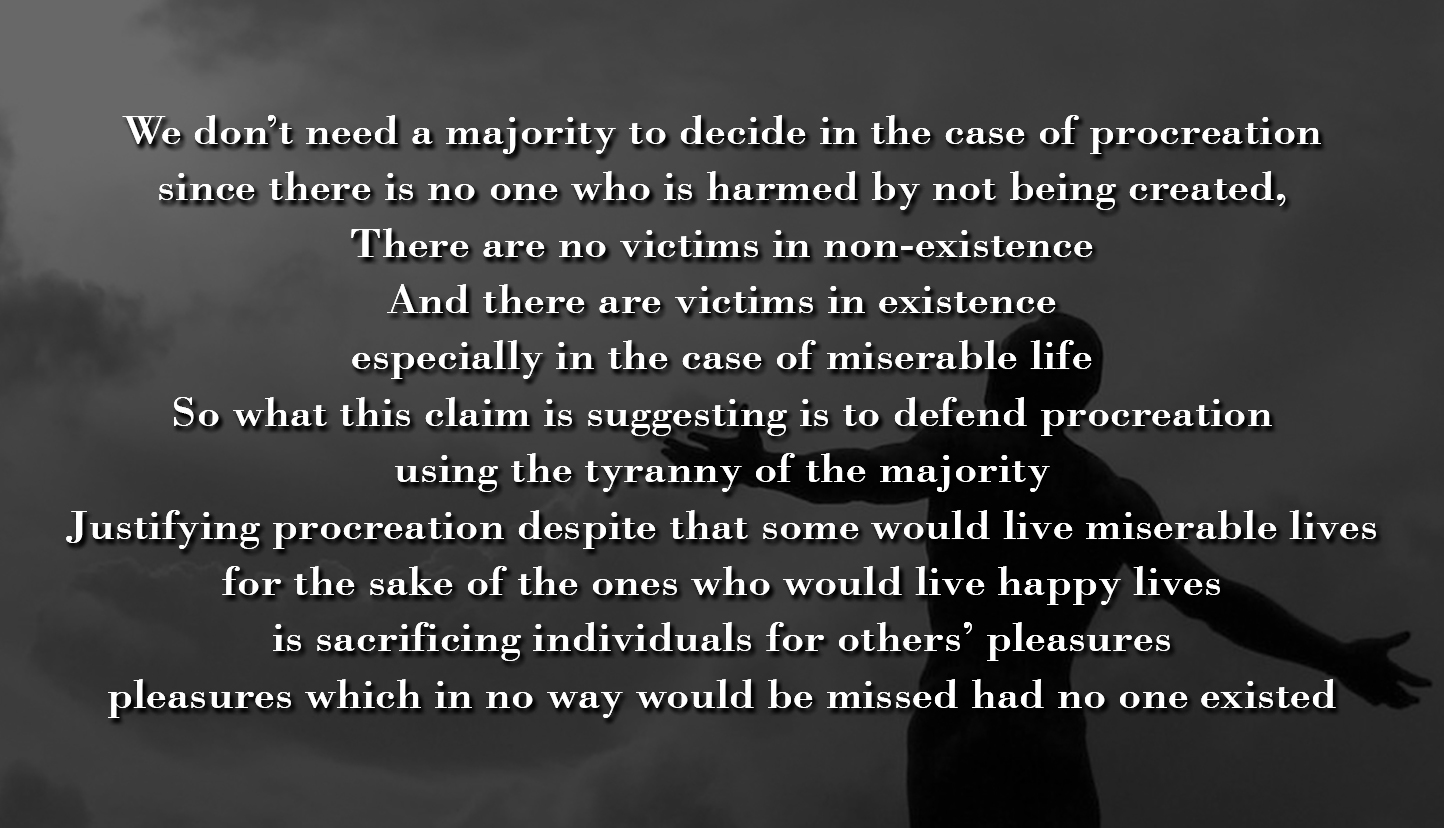
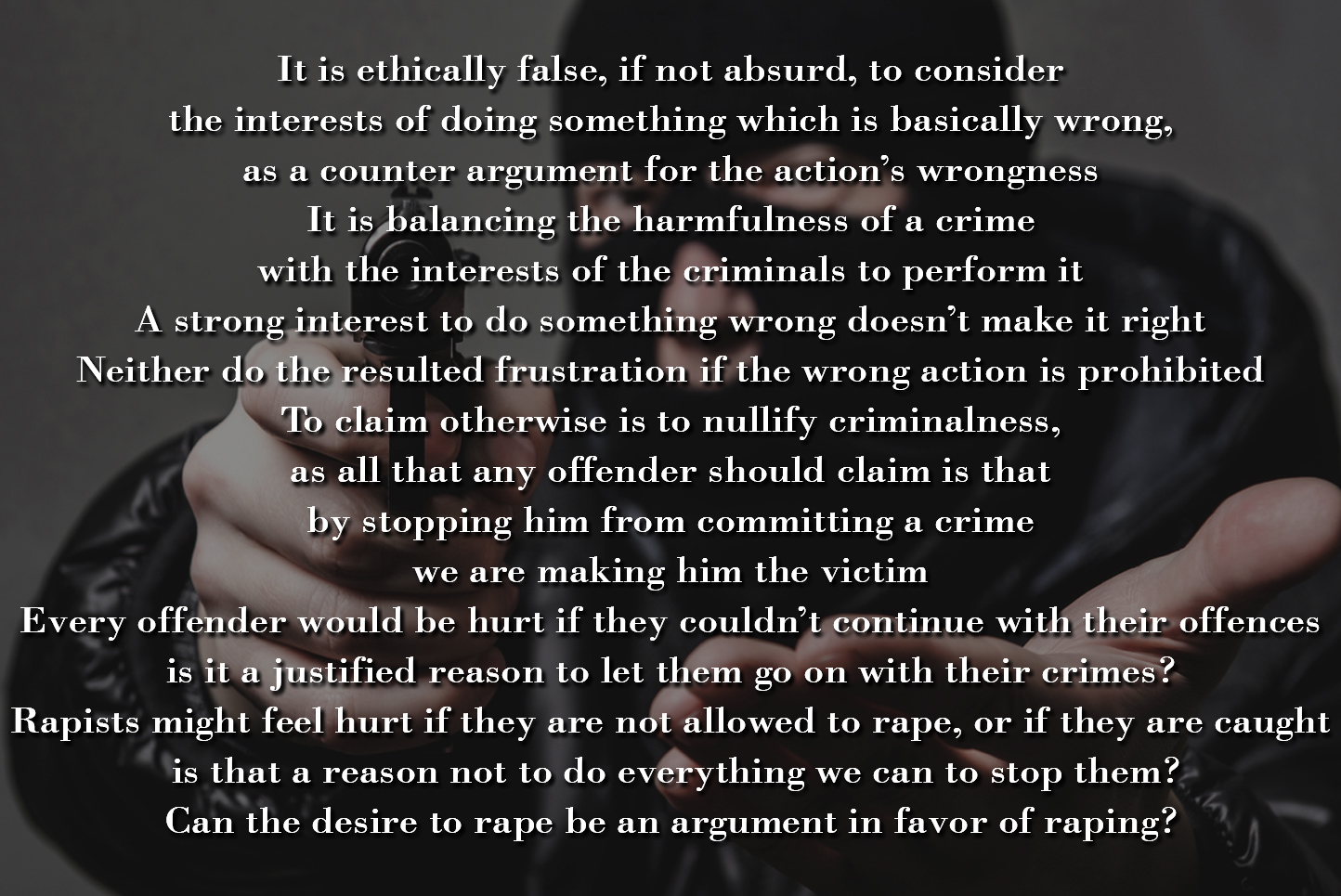
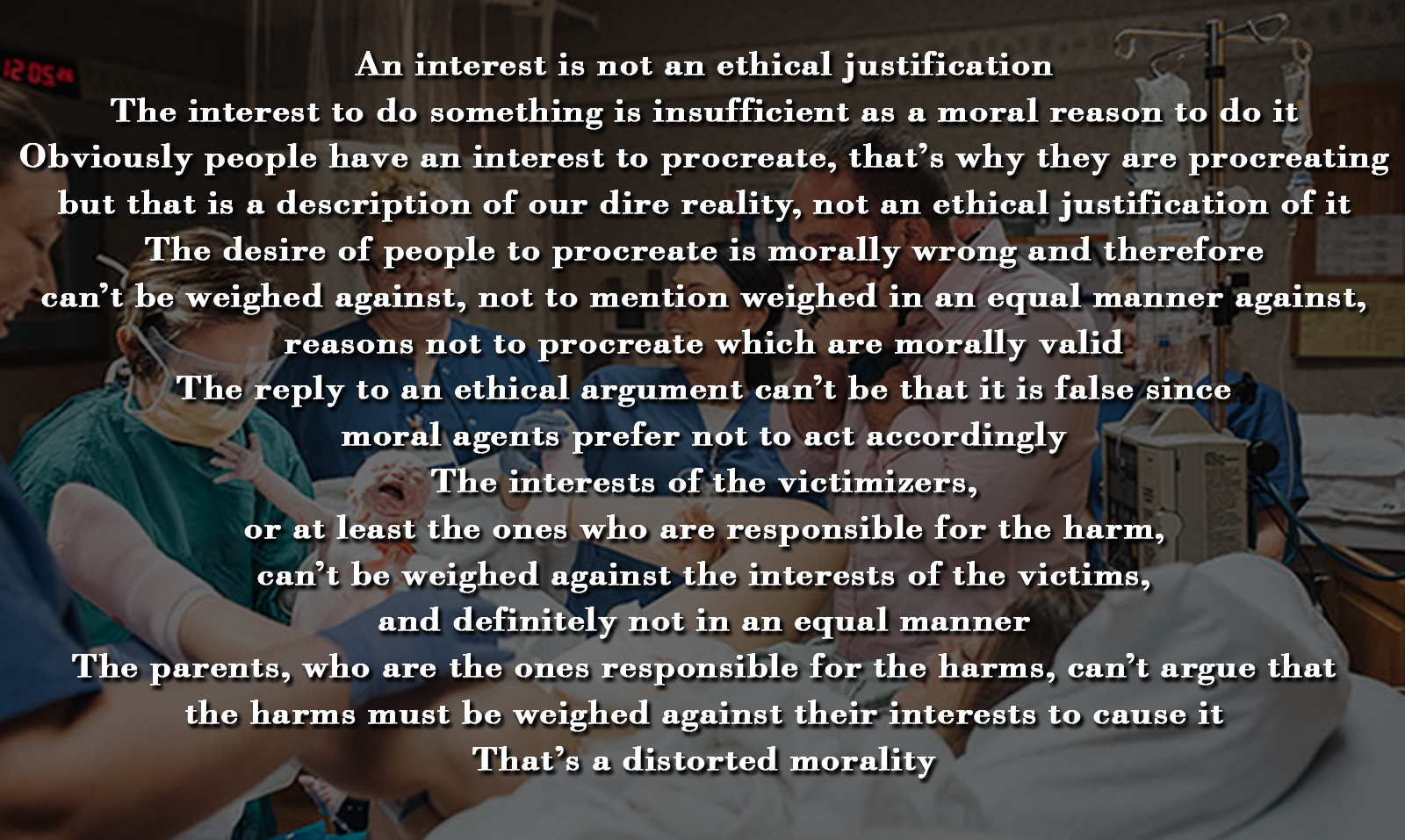
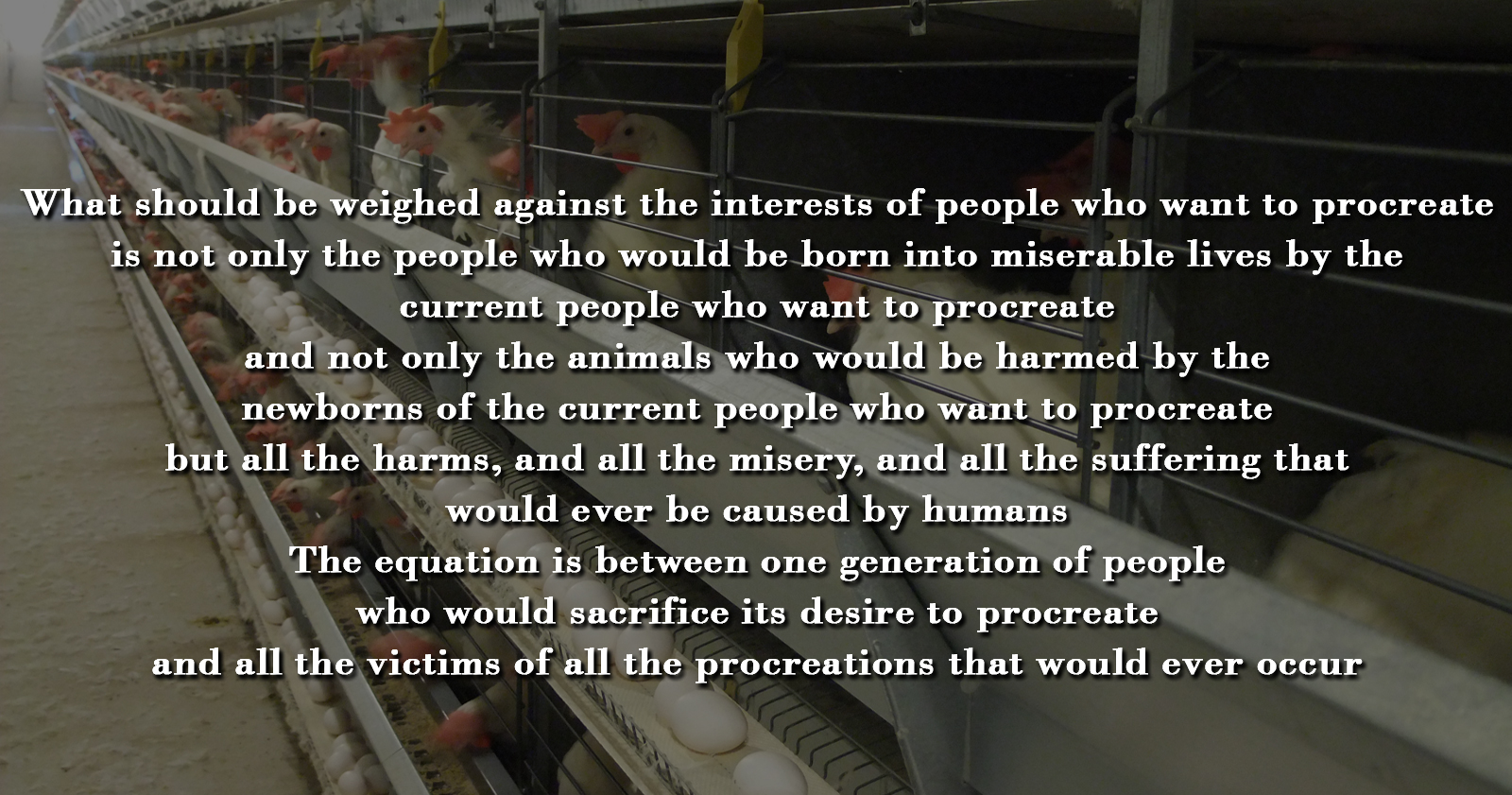
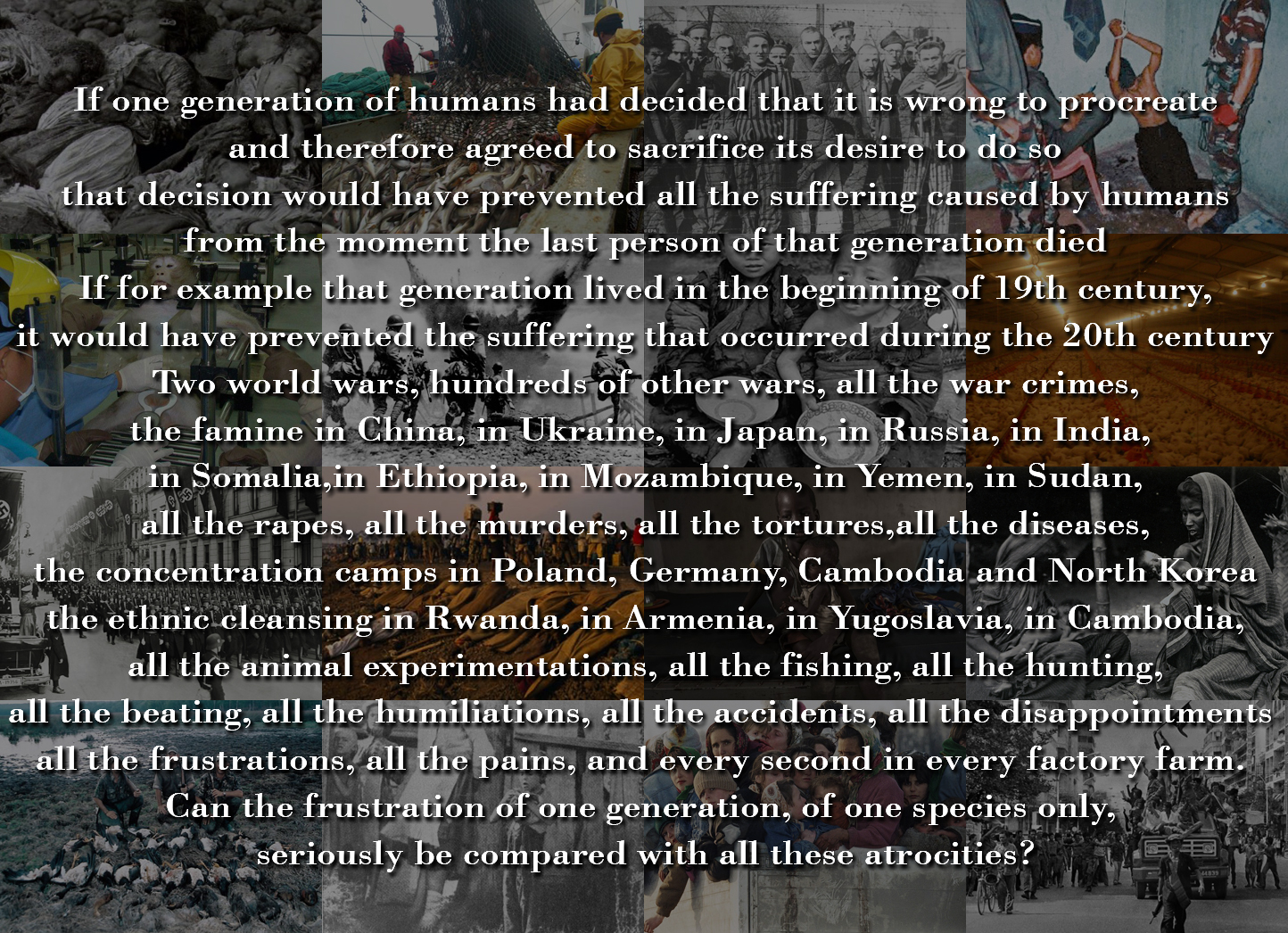
Leave a Reply